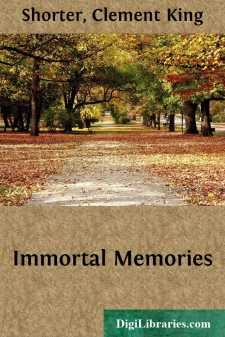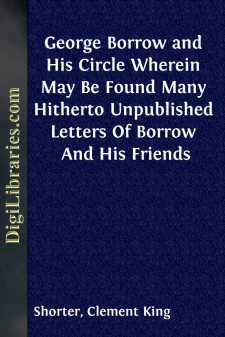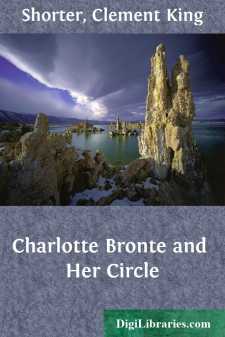Categories
- Antiques & Collectibles 13
- Architecture 36
- Art 48
- Bibles 22
- Biography & Autobiography 813
- Body, Mind & Spirit 142
- Business & Economics 28
- Children's Books 15
- Children's Fiction 12
- Computers 4
- Cooking 94
- Crafts & Hobbies 4
- Drama 346
- Education 46
- Family & Relationships 57
- Fiction 11828
- Games 19
- Gardening 17
- Health & Fitness 34
- History 1377
- House & Home 1
- Humor 147
- Juvenile Fiction 1873
- Juvenile Nonfiction 202
- Language Arts & Disciplines 88
- Law 16
- Literary Collections 686
- Literary Criticism 179
- Mathematics 13
- Medical 41
- Music 40
- Nature 179
- Non-Classifiable 1768
- Performing Arts 7
- Periodicals 1453
- Philosophy 64
- Photography 2
- Poetry 896
- Political Science 203
- Psychology 42
- Reference 154
- Religion 513
- Science 126
- Self-Help 84
- Social Science 81
- Sports & Recreation 34
- Study Aids 3
- Technology & Engineering 59
- Transportation 23
- Travel 463
- True Crime 29
Immortal Memories
Categories:
Description:
Excerpt
PREFATORY
The following addresses were delivered at the request of various literary societies and commemorative committees. They amused me to write, and they apparently interested the audiences for which they were primarily intended. Perhaps they do not bear an appearance in print. But they are not for my brother-journalists to read nor for the judicious men of letters. I prefer to think that they are intended solely for those whom Hazlitt styled “sensible people.” Hazlitt said that “the most sensible people to be met with in society are men of business and of the world.” I am hoping that these will buy my book and that some of them will like it.
It is recorded by Sir Henry Taylor of Samuel Rogers that when he wrote that very indifferent poem, Italy, he said, “I will make people buy. Turner shall illustrate my verse.” It is of no importance that the biographer of Rogers tells us that the poet first made the artist known to the world by these illustrations. Taylor’s story is a good one, and the moral worth taking to heart. The late Lord Acton, most learned and most accomplished of men, wrote out a list of the hundred best books as he considered them to be. They were printed in a popular magazine. They naturally excited much interest. I have rescued them from the pages of the Pall Mall Magazine. Those who will not buy my book for its seven other essays may do so on account of Lord Acton’s list of books being here first preserved “between boards.” I shall be equally well pleased.
CLEMENT SHORTER.
Great Missenden,
Bucks.
A toast proposed at the Johnson Birthday Celebration held at the Three Crowns Inn, Lichfield, in September, 1906.
In rising to propose this toast I cannot ignore what must be in many of your minds, the recollection that last year it was submitted by a very dear friend of my own, who, alas! has now gone to his rest, I mean Dr. Richard Garnett. Many of you who heard him in this place will recall, with kindly memories, that venerable scholar. I am one of those who, in the interval have stood beside his open grave; and I know you will permit me to testify here to the fact that rarely has such brilliant scholarship been combined with so kindly a nature, and with so much generosity to other workers in the literary field. One may sigh that it is not possible to perpetuate for all time for the benefit of others the vast mass of learning which such men as Dr. Garnett are able to accumulate. One may lament even more that one is not able to present in some concrete form, as an example to those who follow, his fine qualities of heart and mind—his generous faculty for ‘helping lame dogs over stiles.’
Dr. Garnett had not only a splendid erudition that specially qualified him for proposing this toast, he had also what many of you may think an equally exceptional qualification—he was a native of Lichfield; he was born in this fine city. As a Londoner—like Boswell when charged with the crime of being a Scotsman I may say that I cannot help it—I suppose I should come to you with hesitating footsteps. Perhaps it was rash of me to come at all, in spite of an invitation so kindly worded. Yet how gladly does any lover, not only of Dr. Johnson, but of all good literature, come to Lichfield. Four cathedral cities of our land stand forth in my mind with a certain magnetic power to draw even the most humble lover of books towards them—Oxford, Bath, Norwich, Lichfield, these four and no others. Oxford we all love and revere as the nourishing mother of so many famous men. Here we naturally recall Dr. Johnson’s love of it—his defence of it against all comers. The glamour of Oxford and the memory of the great men who from age to age have walked its streets and quadrangles, is with us upon every visit. Bath again has noble memories. Upon house after house in that fine city is inscribed the fact that it was at one time the home of a famous man or woman of the past. Through its streets many of our great imaginative writers have strolled, and those streets have been immortalized in the pages of several great novelists, notably of Jane Austen and Charles Dickens....




